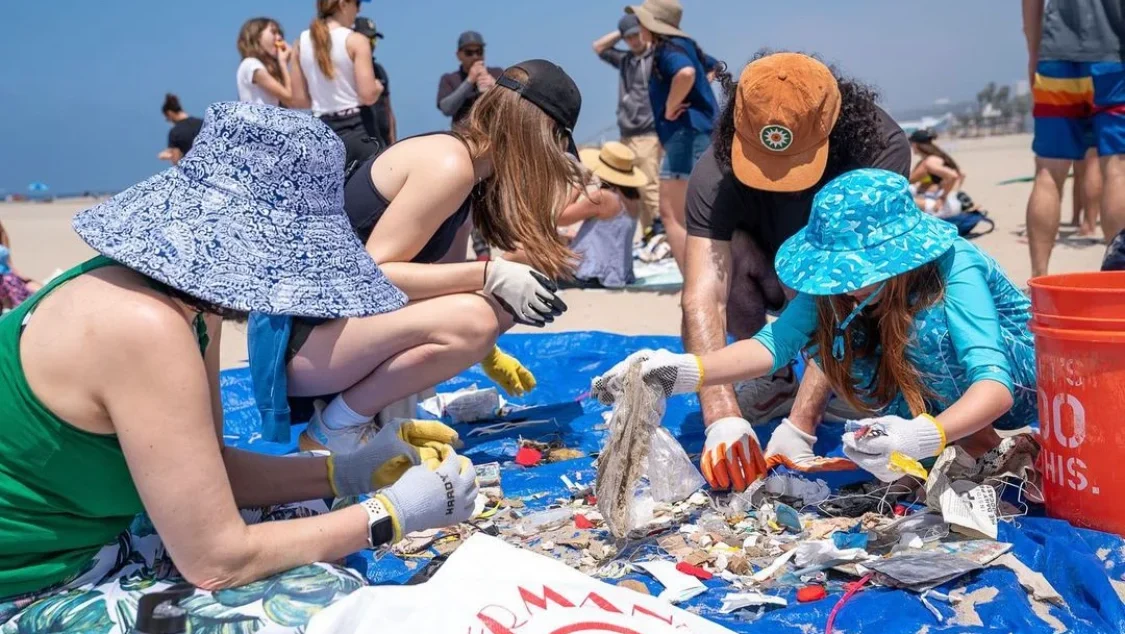Imagine cities with clean streets, clear waters, and no plastic bags floating in the air or clogging drains. This vision is slowly becoming a reality in the Gulf region as governments, businesses, and people push toward a plastic-free future. From policy changes to smart innovations and public awareness campaigns, the Gulf is actively working to turn its cities into plastic-free cities—a goal that seemed impossible just a decade ago.
Here’s a look at how Gulf nations are leading the green charge and what it means for the future of urban living.
Why Plastic-Free Cities Matter
Plastic pollution is one of the biggest environmental problems facing the world. Every year, over 300 million tonnes of plastic waste is produced globally, much of which ends up in oceans, harming wildlife and entering our food chain. In hot and arid Gulf nations, the environmental impact is even worse due to slower plastic breakdown and waste mismanagement.
By targeting plastic-free cities, Gulf nations aim to:
- Reduce landfill overflow and air pollution
- Protect marine and desert ecosystems
- Improve the overall health and quality of life for residents
- Promote eco-tourism and green investment
- Align with global climate goals like Net Zero 2050
UAE’s Bold Steps Toward Plastic-Free Cities
The United Arab Emirates (UAE) is at the forefront of environmental change in the Gulf. In 2023, the UAE introduced a nationwide ban on single-use plastic bags, starting with Abu Dhabi and Dubai. Supermarkets now encourage reusable bags, and there are strict fines for violating the rules.
Key Initiatives:
- Dubai Can Campaign: Over 50 free water refill stations across the city to reduce plastic bottle usage.
- Dubai Municipality’s Plastic Ban: Targets not only bags but also cutlery, cups, and food containers.
- Sharjah Waste-to-Energy Plant: Converts non-recyclable waste into electricity.
The UAE has also launched the “Year of Sustainability” with major community cleanups, school programs, and incentives for businesses adopting plastic alternatives.
Saudi Arabia’s Long-Term Green Vision
Saudi Arabia’s Vision 2030 is not just about economic growth but also sustainability. The Saudi Green Initiative (SGI) focuses on reducing plastic waste through policy, education, and green technologies.
What’s Happening:
- Bans on plastic bags in several major cities including Riyadh and Jeddah.
- Mandatory recycling programs in commercial and residential zones.
- Public-private partnerships to develop biodegradable alternatives.
Companies are switching to eco-friendly packaging, and the youth are actively participating in environmental clubs and clean-up drives.
Qatar’s Eco Push Ahead of Global Events
Hosting global events like the FIFA World Cup 2022 gave Qatar a chance to showcase its green ambitions. One key message during the tournament was sustainability, including a move toward plastic-free stadiums and eco-friendly hospitality services.
Notable Actions:
- Ban on single-use plastic bags in retail since 2022.
- Plastic alternatives used in public spaces, schools, and hospitals.
- Introduction of compostable materials in major food delivery chains.
Qatar’s Ministry of Environment is working closely with schools and universities to embed sustainability in everyday life.
Oman’s Focus on Community and Nature
Oman has always taken a nature-first approach to development. Known for its pristine coastlines and mountains, Oman sees the plastic-free journey as a way to preserve its natural beauty.
Progress Highlights:
- Nationwide ban on plastic shopping bags from 2021.
- Encouragement of local businesses to offer paper and cloth bag alternatives.
- Beach cleanup events in places like Salalah and Muscat with high public involvement.
Omani youth-led NGOs are also stepping up, spreading awareness on social media and engaging with local communities.
Kuwait and Bahrain: Smaller Nations, Big Moves
While smaller in size, Kuwait and Bahrain are making significant progress too.
Kuwait:
- Ban on non-biodegradable plastic in government institutions.
- Use of plastic recycling bins in schools and parks.
- Promotion of green packaging in food and retail sectors.
Bahrain:
- Launch of Green Bahrain campaign for plastic-free public events.
- Partnering with regional plastic recycling firms.
- Government-funded workshops on reducing household plastic use.
How Technology and Innovation Are Helping
The rise of green startups and eco-innovation hubs across the Gulf is accelerating the journey toward plastic-free cities.
Examples:
- ReLoop (UAE): Turns plastic waste into 3D printing material.
- Green Camel (KSA): Develops biodegradable plastic alternatives from date palm waste.
- EcoLoop Qatar: Smart vending machines offering rewards for recycling.
Additionally, smart bins, AI-powered waste segregation systems, and blockchain-based recycling tracking tools are being adopted in many cities.
Role of Citizens: Changing Habits for a Better Tomorrow
No city can become plastic-free without its people. Across the Gulf, residents are embracing change through:
- Carrying reusable bags and bottles
- Supporting plastic-free cafes and shops
- Participating in cleanup drives and awareness campaigns
- Educating children about sustainability from a young age
Social media influencers and local celebrities are also using their platforms to promote the plastic-free lifestyle, making it a trendy and responsible choice.
What Lies Ahead: Challenges and Hopes
While the Gulf is making great strides, challenges still remain. Imported goods wrapped in plastic, lack of recycling infrastructure in some areas, and consumer convenience culture are tough hurdles. However, the growing public support and strong political will are promising signs.
Future plans include:
- Wider bans on microplastics and industrial packaging
- More refill stations and zero-waste supermarkets
- Stronger penalties for violators
- Introduction of plastic tax in some Gulf states
Conclusion: A Greener, Cleaner Gulf Is Possible
From shiny malls in Dubai to the peaceful beaches of Oman, the Gulf’s path toward plastic-free cities is not just an environmental trend—it’s a necessity. With clear policies, public participation, and creative solutions, the dream of a cleaner and greener future is already taking shape.
If the current momentum continues, the Gulf may soon become a global model for sustainable urban living.
Do follow Gulf Magazine on Instagram
Also read: British Airways Reverses Decision: Bahrain Flights Back On!



